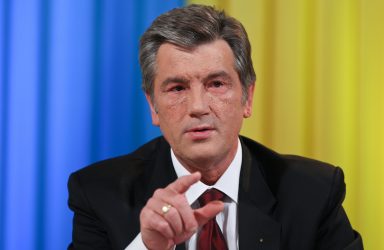Brazil’s Mercosur Economic Strategy: From Destiny to Impairment
Today, Mercosur is more of a dysfunctional set of rules, decision-making procedures and abstract principles rather than a well-functioning case of open regionalism. Mercosur’s inoperativeness condemns its member countries to remain relatively isolated from the dynamic developments taking place in the global economy.
Musings on Gaddafi’s death and Libya’s future
While few tears will be shed for Gaddafi’s loss, might his death turn out to be a curse in disguise? Will the loss of their common enemy lead the Libyan rebel forces to unravel? And, if things do fall apart in Libya, how will this affect the Arab spring in other countries?
Between Austerity and Viability: The Search for Future Air Combat Platforms in East Asia
Recent years have seen the intensification of political tensions between various states in the Pacific and East Asia. The rise of China as a military and economic power has necessarily triggered concern in the region, causing nations to reexamine their air-power procurement and development plans.
How to Lose a Revolution
Some are calling the coalition intervention that began 19 March 2011, in Libya a success. I call tens of thousands of deaths and injuries a tragedy. When such casualties occur owing to a military intervention never shown to be necessary, the intervention is a failure.
Putin Returns
Putin will remain in power until 2024, barring assassination or revolution, and will become Russia’s longest ruling leader since Stalin. He is not known for his willingness to compromise or surrender Russia’s imperial gains, suggesting that a new time of troubles is looming on the horizon. This will indicate whether the West still sees Russia as a political part of Europe or has concluded that the country cannot be changed and the days of democratization have become a historical footnote.
Is the Cuban problem fading away with the ageing Castro regime?
US attempts at regime change in Cuba have inadvertently created a martyr for anti-imperialist and anti-capitalist movements. Fidel Castro shall continue to play an important role in US-Latin American relations long after his death, with the regime standing as a focal anti-US hub in Latin America.
Bluffing its way into power: Liberal-lite interventionism
I recently read an insightful blog entry by a doctoral candidate at LSE, John Collins. The entry neatly outlines how liberal intervention in Iraq impacted the foreign policies of Iran and North Korea, as well as discusses how NATO’s engagement in Libya relates to liberal interventionism.
Is it correct to announce the decline and fall of the CNN effect?
The so-called CNN effect, where the actions of governments are influenced by the imagery presented by 24 hour news media, is not declining, but has been overstated since its initial conception, rendering James Hoge’s assertion that the CNN effect had more influence in its infancy than in subsequent years a misleading notion.
The Hidden Media Powers That Undermine Democracy
We could say that all popularly elected governments are today proactively engaged in clever, cunning struggles to kidnap their clients and citizens mentally through the manipulation of appearances, with the help of accredited journalists and other public relations curators. The age of organised political contrivance is upon us. How and why has this happened?
Ukraine’s Orange Revolution Five Years On
The story of how Yushchenko came to power with high domestic and international expectations that he largely failed to fulfill will be a fascinating area for future research.




